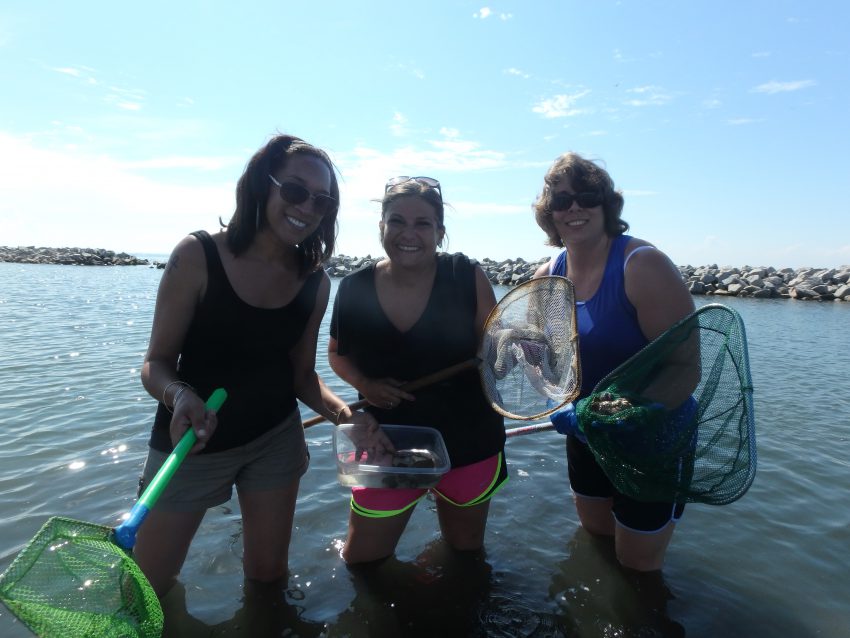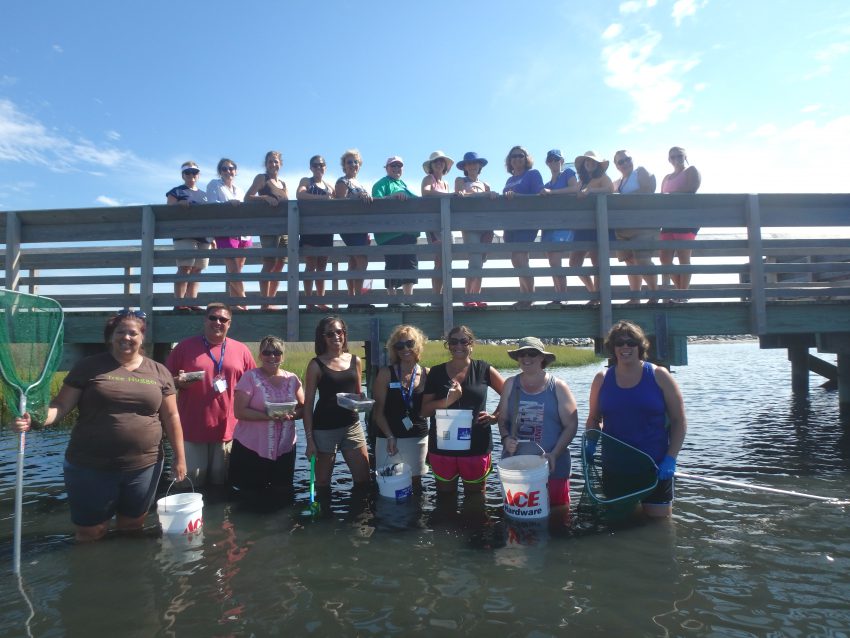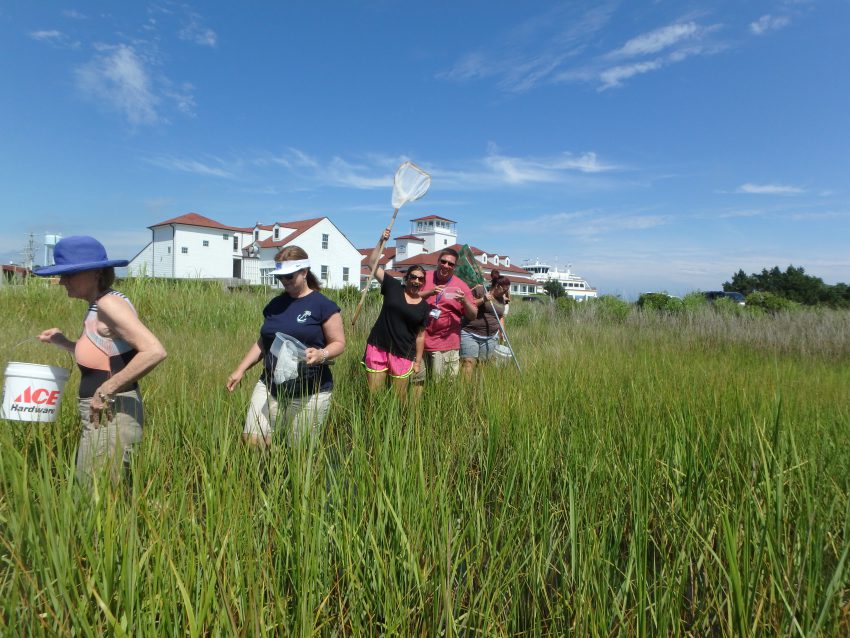When school is out for summer, some teachers use this time to take classes for themselves. That’s what 21 teachers across the state did during a four-day professional development seminar in Ocracoke Island from June 27 to June 30, 2016.
The four-day seminar, offered at the North Carolina Center for the Advancement of Teaching (NCCAT), focused on integrating social studies and science content using literacy.
Sara Hallas, education coordinator for the North Carolina Coastal Federation, led sessions during the seminar. In true federation fashion of learning while doing, Hallas led the teachers through various sessions both in the classroom and in the field. Hallas also connected the teachers to resources they could take back to their classrooms.
Teachers who attended the session said Hallas was a pleasure to work with.
“I was fortunate enough to get the chance to work with Sara Hallas at NCCAT in Ocracoke last week,” said April Zolnierowicz, a kindergarten teacher at Knightdale Elementary School. “Sara had a lot of valuable information about estuaries and the effects people have on the environment.”
Sessions such as the federation’s help teachers return to classrooms with new resources and new, exciting subjects to teach. In other words, these sessions “keeps good teachers teaching,” as emphasized in NCCAT’s mission.
The federation has been partnering with NCCAT’s Ocracoke campus for the past six years through involvement with both the professional development seminars and the installation of a living shoreline.
The federation strives to educate students, teachers, families, community members and leaders so they are motivated, engaged partners in protecting and restoring our coast. Combined with NCCAT’s mission to keep high-quality teachers in the classroom by helping them grow in knowledge, skill and compassion, working together makes perfect sense.
Many of the teachers are long time North Carolina residents and their eyes were opened to coastal experiences while learning many new things.
“I have a passion for the ocean and I didn’t even realize how important oysters were to the ecosystem until now. Who knew that oysters were illegal to throw away,” said Zolnierowicz. “All of her activities were fun and I look forward to using all her activities in my classroom.”
Established by the state legislature in 1985, NCCAT provides a year-round curriculum of intensive, cross-disciplinary programs that are offered to public school teachers through campus locations in Ocracoke and Cullowhee, North Carolina.
For more information about the living shoreline and the federation’s work with NCCAT, visit this page. Please contact one of our education coordinators for more information about education programs.
- Teachers used dip nets to explore different critters in the water
- The teachers who attended the federation’s session were energized and excited to bring what they learned back to their classrooms
- Teachers walk through a marsh and explore the importance of estuaries during a NCCAT conference in Ocracoke



